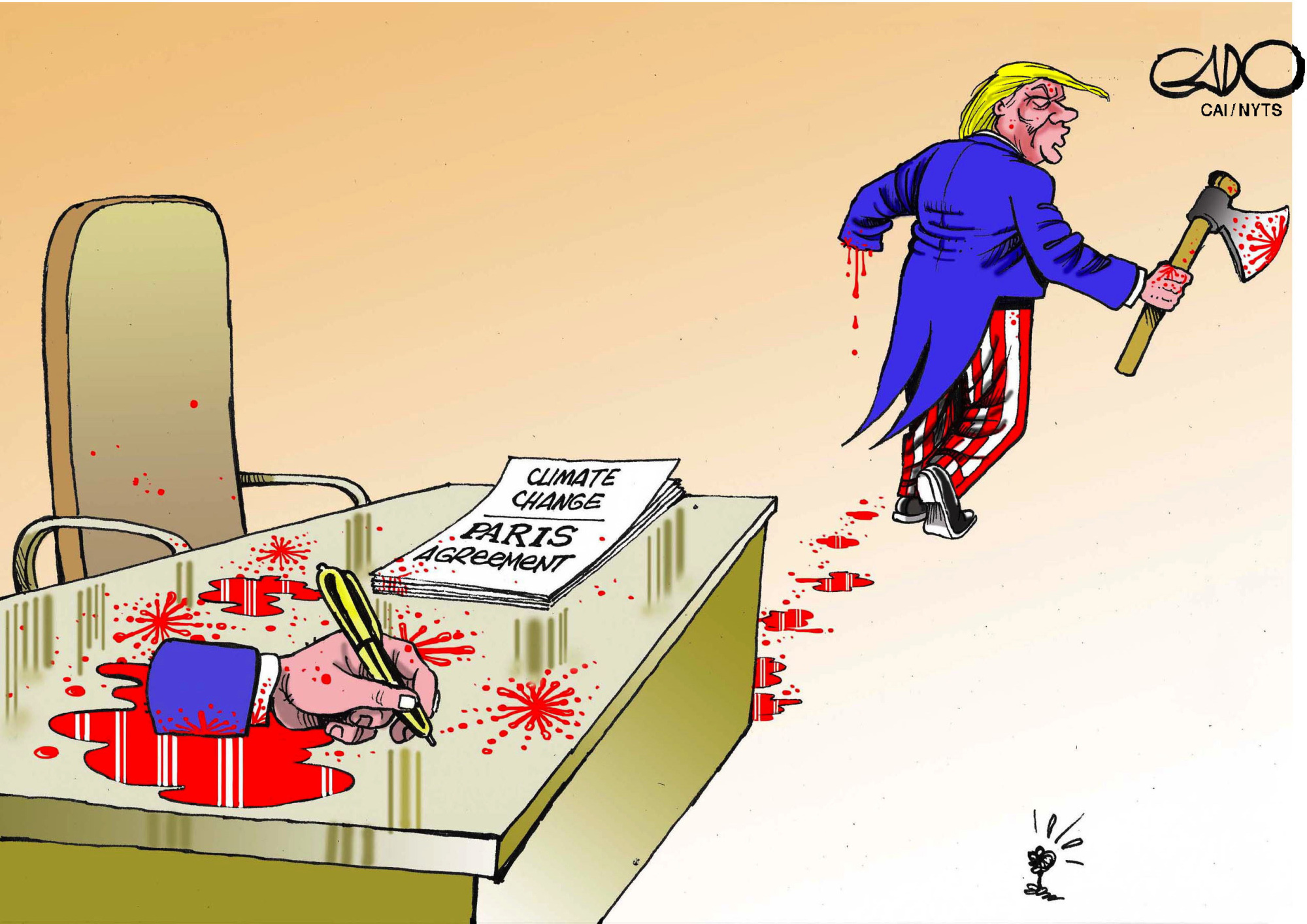U.S. President Donald Trump's decision to remove the United States from the Paris climate agreement is yet another manifestation — alongside the budget submitted to Congress and the president's speech at NATO headquarters in Brussels — of how he continues to see U.S. interests as narrowly economic, and U.S. influence as exerted solely through hard power.
Had the president a more expansive view of both the nation's interests and influence, he would have kept the U.S. in the accord. Instead, he not only harmed global efforts to address a pressing problem, but also deprived the U.S. of an important source of so-called soft power. In a world in which military might is increasingly difficult and costly to use, America will suffer from this loss.
My Harvard colleague Joe Nye coined the term soft power, defining it simply as "the ability to get what you want through attraction rather than coercion or payments." According to Nye, the soft power of a country depends largely on three components: its culture, its political values, and how it conducts itself in the world and at home. To the extent that these three factors are attractive to others, a country can wield considerable sway abroad. This soft power complements more traditional notions of hard power: the military, the economy and coercive elements of policy.



